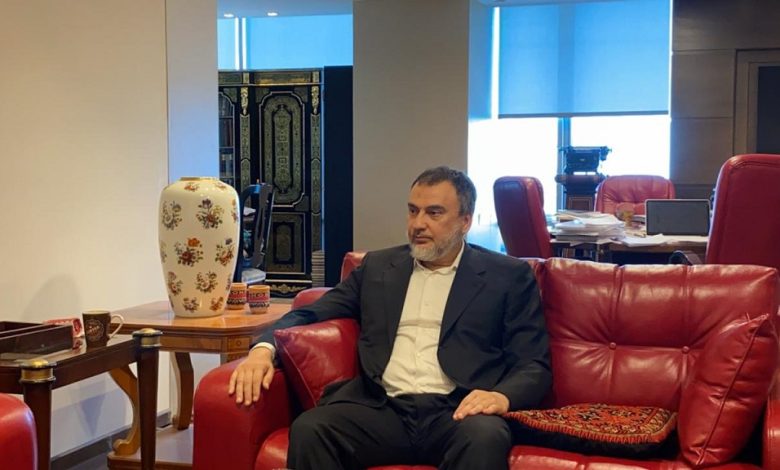
By : Nedal Zubeidi
Jordan Daily – ECOVIS, a global consulting firm founded in Germany in 1909, now operates in over 94 countries. The firm’s name, derived from “economic” and “vision,” reflects its mission to bridge the gap between the economy and investment through consulting.
Dr. Fathi Saleh, managing partner of ECOVIS Jordan, brings extensive experience from his previous roles as a senior partner at top-4 international consulting firms in the Middle East. Saleh, a certified public accountant from the United States, also holds various international certifications in finance, accounting, valuation, and investment.
ECOVIS Jordan, a member of ECOVIS International, brings 35 years of expertise in audit, accounting, management consulting, transaction advisory, investment management, and business development, with more than $2 billion in executed deals across the MENA region.
“ECOVIS Jordan has been serving a diverse clientele including international companies, NGOs, banks, insurance firms, and manufacturing companies,” Saleh said in an interview with the Jordan Daily. “Our expertise extends beyond Jordan, encompassing projects in the Gulf region, Asia and Africa.”
Saleh noted that ECOVIS Jordan has played a pivotal role in serving mega projects in various sectors including GSM, financial institutions, manufacturing, technology, education, health care, NGOs, and various other sectors.
“In many investments, we go beyond advisory roles to ensure sustainability and successful operations”, Saleh explained. “We identify business opportunities, conduct business valuations, secure capital funding, optimize value, and enhance controls over operations.”
Saleh emphasized the firm’s holistic approach, which includes enhancing human resources, serving the local community, and improving overall experiences. “We focus on the four economic factors: land, capital, human resources, and organization behavior.
Jordan’s young population, with 54% under the age of 24, presents significant potential. “Our responsibility extends to addressing community issues like education and employment,” Saleh said. “We conducted various extensive studies on education and employment, recognizing that each Jordanian family is affected by these issues.”
Saleh stressed the importance of evaluating higher education along with its inputs from secondary schools. “Effective outputs require strong inputs,” he noted. “We concentrate on pre-graduation (grades 1 to 12) and from university to career end. We’ve developed an online platform to align university outputs with labor market needs.”
The platform integrates three key areas: university output, labor market needs, and professional unions and associations status and requirements. “By using our platform, students gain insights into labor market demands, easing their job search post-graduation,” Saleh said.
Dr. Saleh emphasized the dual pillars of education and employment as fundamental to societal development and sustainable economic growth. He noted the necessity of shifting towards vocational and technical education, challenging prevailing societal norms, and highlighting the importance of skill-building alongside academic education.
Saleh pointed out that 33% of the global economy volume consists of countries with negative population growth rates, creating job opportunities for young Jordanians. He advocated for a unified and realistic education strategy, stressing the need for financial resources to achieve desired goals. He also highlighted the importance of academic and career counseling for high school students to help them choose fields that align with future job markets and their skills, abilities, and interests.
Saleh emphasized the role of families in supporting educational institutions to elevate education standards. He noted that approximately 80% of newly created jobs are concentrated in three governorates: Amman, Irbid, and Zarqa, underscoring the need for localized development focus.
He concluded that training and employment platforms are strategic partners for universities in achieving a promising future for youth, bridging the gap between educational outcomes and the rapidly changing labor market demands.

